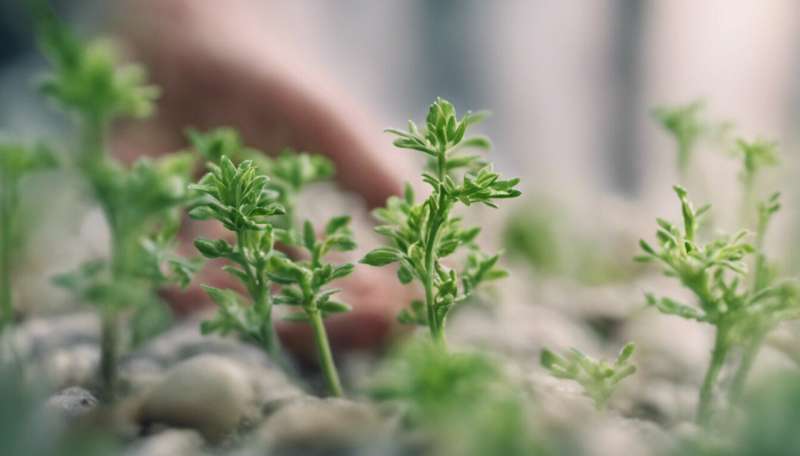Touching thyme: Babies reluctant to grab plants, study shows

Babies show a striking reluctance to touch plants, a response that would help protect them from dangers such as toxins or thorns present throughout our evolutionary past, a new study led by Yale University researchers show.
Psychologists Annie Wertz and Karen Wynn found infants took on average five seconds longer to reach out and touch plants than other objects put in front of them.
Wertz and Wynn suspect the reluctance is a default strategy that can be overturned with information from other people that a particular plant is safe to eat or use for some purpose.
Although plants are largely an afterthought in modern environments, "When you think of humans in their historically natural environment, plants were a huge part of their lives," Wertz said.
More information: Annie E. Wertz, Karen Wynn, Thyme to touch: Infants possess strategies that protect them from dangers posed by plants, Cognition, Volume 130, Issue 1, January 2014, Pages 44-49, ISSN 0010-0277, dx.doi.org/10.1016/j.cognition.2013.09.002.




















